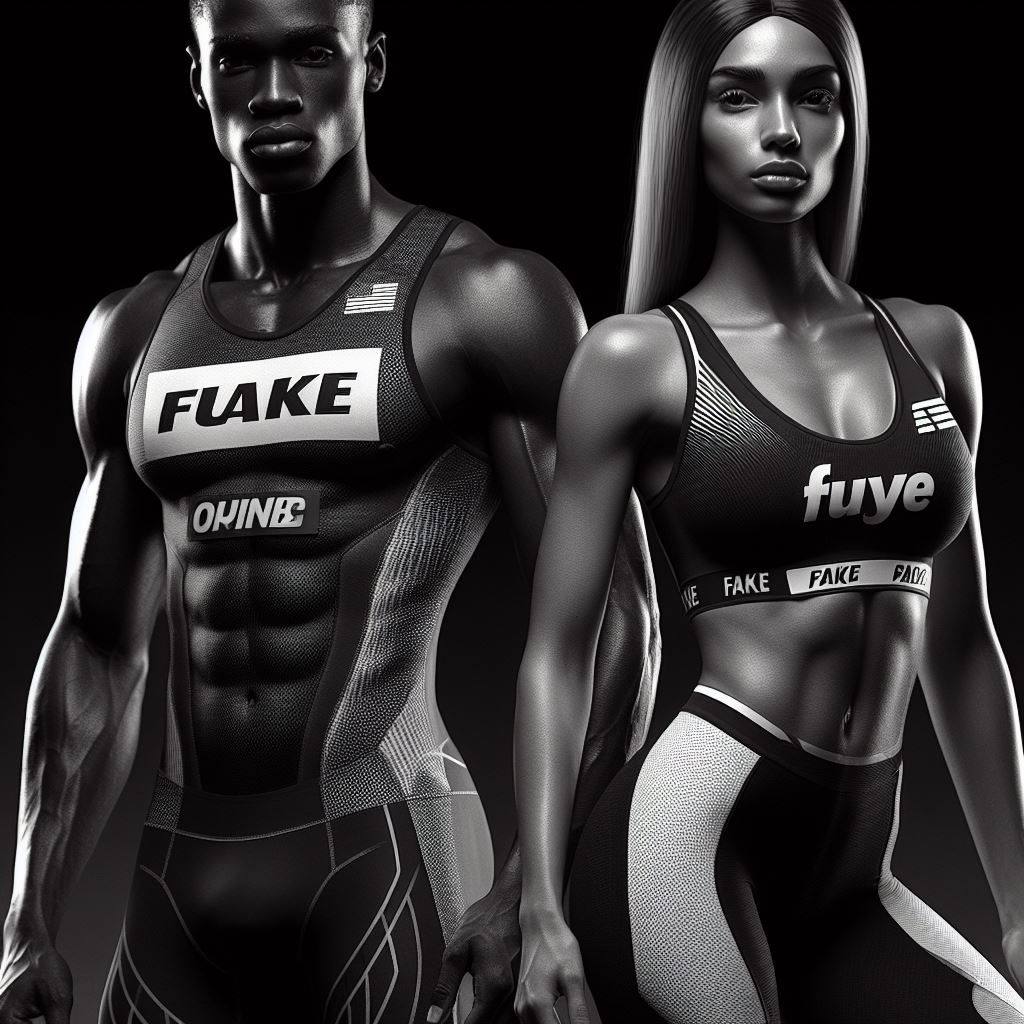Why All Sponsorships Matter In Shaping Strong Sports
Sponsors
——————–
Introduction
Sports sponsorships play a pivotal role in shaping the landscape of athletic events, teams, and individual athletes. Beyond mere financial support, sponsorships provide a wide range of benefits that enhance the sporting experience for everyone involved. In this article, we’ll explore why sponsorships are crucial at all levels of sports, examine the impact on male and female athletes, and delve into the dynamics of team versus individual sponsorships.
The Importance of Sponsorships at Different Levels
————————————
Grassroots and Community Sports
At the grassroots level, sponsorships are fundamental. They enable local clubs and organizations to create more opportunities for participation. Here’s how:
Facilities: Sponsorship funds contribute to building new pitches, maintaining existing facilities, and ensuring safe playing environments.
Team Kits: Sponsors often provide team uniforms, fostering a sense of identity and pride among players.
Travel Expenses: For away games, sponsorships cover travel costs, making it feasible for teams to compete beyond their local area.
Professional Sports Clubs
——————————-
Corporate sponsorships significantly impact professional sports clubs:
Enhancing Fan Experience: Sponsorship funds improve stadium facilities, fan engagement, and overall match-day experiences.
Community Initiatives: Clubs use sponsorship resources for community projects, such as food bank deliveries, mental health awareness programs, and youth development initiatives.
Quality of the Game: Reliable, long-term sponsorships directly enhance the game’s quality by investing in player development, coaching, and infrastructure.
Male vs. Female Sponsorships
—————–
Male Athletes
Historically, male athletes have dominated sponsorship deals due to the higher visibility of men’s sports.
Iconic examples include Emirates’ long-standing sponsorship of Arsenal in the Premier League, which has become synonymous with the club globally.
Individual male players like David Beckham have secured lucrative endorsement deals, further highlighting the impact of sponsorships.
Female Athletes
The landscape is changing, with female athletes gaining prominence.
Emma Raducanu, the first-ever qualifier to win a Grand Slam in tennis, has signed major deals with brands like Porsche, Tiffany and Co., and British Airways.
Sponsorships empower female athletes by providing financial support and elevating their profiles.
Team vs. Individual Sponsorships
——————————
Team Sponsorships
Team sponsorships benefit entire clubs or organizations.
Examples include shirt branding deals like Coca-Cola’s partnership with FIFA during the World Cup.
These sponsorships contribute to club sustainability, player development, and community outreach.
Pros of Sponsorships in Sports Teams
Financial Support:
Pro: Sponsorships inject much-needed funds into sports teams. These resources can cover operational costs, player salaries, and facility maintenance.
Impact: Financial stability allows teams to focus on training, development, and achieving their goals.
Brand Exposure:
Pro: Sponsors provide visibility through branding on team jerseys, stadiums, and promotional materials.
Impact: Increased exposure attracts fans, potential investors, and other sponsors, creating a positive feedback loop.
Enhanced Facilities and Equipment:
Pro: Sponsorships enable teams to upgrade facilities, invest in state-of-the-art equipment, and create better training environments.
Impact: Improved facilities enhance player performance and overall team morale.
Community Engagement:
Pro: Sponsors often collaborate with teams on community initiatives, such as youth programs, charity events, and school partnerships.
Impact: Positive community engagement fosters goodwill and strengthens the team’s local ties.
Player Development:
Pro: Sponsorships support talent development programs, coaching staff, and scouting efforts.
Impact: Teams can nurture young athletes, ensuring a pipeline of skilled players for the future.
Cons of Sponsorships in Sports Teams
Dependency on Sponsors:
Con: Overreliance on sponsorships can be risky. If a major sponsor withdraws support, the team may face financial instability.
Impact: Teams should diversify revenue sources to mitigate this risk.
Conflict of Interest:
Con: Sponsors may have conflicting interests with team goals. For example, a fast-food chain sponsoring a health-focused team.
Impact: Balancing sponsor expectations with team values can be challenging.
Pressure to Perform:
Con: High-profile sponsorships come with expectations. Teams must deliver results to maintain sponsor satisfaction.
Impact: Performance anxiety can affect players and coaching staff.
Loss of Autonomy:
Con: Sponsors often dictate certain aspects, such as branding guidelines or promotional events.
Impact: Teams may compromise their identity or values to appease sponsors.
Unequal Distribution:
Con: Not all teams receive equal sponsorship opportunities. Smaller clubs may struggle to attract major sponsors.
Impact: Disparities can affect competitiveness and league dynamics.
Sponsorships offer financial stability, exposure, and community engagement, but teams must navigate potential pitfalls. Striking the right balance ensures that sponsorships contribute positively to team success.
Individual Sponsorships
Individual athletes also secure personal sponsorships.
These deals focus on the athlete’s brand and performance.
Successful individual sponsorships can elevate an athlete’s career and financial prospects.
Pros of Sports Sponsorships for Individuals
Recognition Benefits:
Pro: Sports sponsorships yield name recognition. When athletes wear gear with a sponsor’s logo, spectators (both in the arena and on TV) see it, reinforcing the ubiquity of that brand.
Impact: Increased brand visibility can lead to higher sales for the sponsoring company.
Financial Support:
Pro: Companies attach their names to athletes, enjoying recognition at a relatively low cost.
Impact: This recognition often translates into high profits for the sponsoring brand.
Profile Enhancement:
Pro: Sponsorships raise an athlete’s profile. High-level athletes can generate serious profit through sponsorships.
Impact: Increased visibility can attract more fans, endorsements, and additional sponsorship deals.
Cons of Sports Sponsorships for Individuals
————————–
Recognition Drawbacks:
Con: If athletes become too closely associated with a sponsor, their personal brand might get overshadowed.
Impact: Athletes risk losing their unique identity and becoming mere billboards for sponsors.
Pressure to Perform:
Con: Sponsorships come with expectations. Athletes must consistently perform well to maintain sponsor satisfaction.
Impact: The pressure to excel can affect an athlete’s mental and physical well-being.
Limited Autonomy:
Con: Sponsors often dictate certain aspects of an athlete’s public image, behavior, or endorsements.
Impact: Athletes may sacrifice personal preferences or values to align with sponsor requirements.
Contractual Obligations:
Con: Sponsorship contracts can be restrictive. Athletes may need to attend events, endorse products, or participate in promotional activities.
Impact: Balancing contractual obligations with training and competition can be challenging.
Risk of Controversy:
Con: Sponsors may face backlash due to an athlete’s actions or statements.
Impact: Athletes must be cautious to avoid controversies that could harm both their personal brand and the sponsor’s reputation.
While sports sponsorships offer significant benefits, individual athletes must carefully navigate the potential downsides. Finding the right balance ensures a successful partnership that benefits both parties.
Politics in Sports Sponsorships: Navigating Complex Terrain
1. The Power of Sponsorship
Framing Aerobics as a Commodity:
The politics of sports sponsorship involve framing sports (such as aerobics) as commodities to be exchanged in the marketplace.
Voluntary, private, and public organizations form alliances, leading to property rights related to sponsorships.
Political calculations and judgments determine how resources are allocated within this network.
2. Social and Political Strategies
Engaging with Consumers:
Brands strategically align with sports events to engage consumers.
Sponsorships provide a platform for brands to communicate their values, social responsibility, and political stances.
Companies often use sports sponsorships to enhance their public image and connect with specific demographics.
Activism and Advocacy:
Athletes and teams increasingly use their platforms to advocate for social and political causes.
Sponsorships play a role in amplifying these messages. Brands must decide whether to support or distance themselves from athlete activism.
3. Geopolitical Implications
Global Sporting Events:
Mega sporting events (e.g., Olympics, FIFA World Cup) attract international attention.
Host countries leverage sponsorships to showcase their political stability, economic prowess, and cultural heritage.
Boycotts and Controversies:
Geopolitical tensions can impact sponsorships. Boycotts, sanctions, or political disputes may lead sponsors to reconsider their involvement.
Brands face dilemmas when events occur in politically sensitive regions.
4. Balancing Profit and Principles
Ethical Considerations:
Sponsors weigh financial gains against ethical principles.
Supporting controversial regimes or events can tarnish a brand’s reputation.
Brands must navigate the fine line between profit and social responsibility.
Sports sponsorships are not immune to political forces. Whether it’s framing sports as commodities, engaging with consumers, or navigating geopolitical complexities, the interplay between politics and sponsorships shapes the sports world.
Conclusion
Sponsorships are the lifeblood of sports, fostering growth, inclusivity, and excellence. Whether at the grassroots or professional level, male or female, team or individual, sponsorships shape the future of sports. So next time you cheer for your favorite team or athlete, remember the impact of those logos on their jerseys—they represent much more than just corporate branding.
Join the Discussion! What are your thoughts on sports sponsorships? Have you witnessed any remarkable sponsorship stories? Share your insights with us below!
30 Hashtags: #SportsSponsorship #AthleteSupport #GameChangers #TeamSpirit #InclusiveSports #SponsorshipMatters #SportingExcellence #CommunityImpact #AthleteBrands #PlayToWin #SportsBusiness #FanEngagement #EmpoweringAthletes #GrassrootsSports #ChampioningTalent #GlobalAudience #TeamVsIndividual #WomenInSports #SponsorshipSuccess #SportingJourney #BeyondTheGame #InspiringYouth #StadiumExperience #SportingLegends #AthleteEmpowerment #GameDayThrills #SportingCommunity #SponsorshipImpact #SportingFutures #SportingIdentity






I needs to spend some time learning more or understanding more.